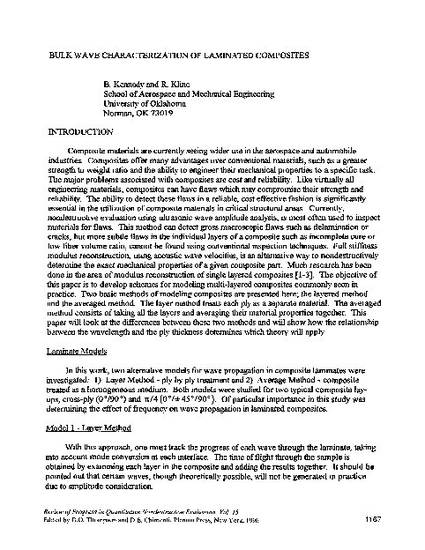
Presentation
Ultrasonic Attenuation Measurements in Jet-Engine Titanium Alloys
Review of Progress in Quantitative Nondestructive Evaluation
Location
Seattle, WA
Start Date
1-1-1996 12:00 AM
Disciplines
Description
In the inspection of titanium material intended for use in aircraft engines, a number of unusual phenomena are observed, including significant fluctuations of the amplitude and phase of back-surface echoes and of the amplitudes of pulse-echo signals from nominally identical flaws[1]. Practical implications include a broadening of the probability of detection curves and difficulties in determining the ultrasonic attenuation, a parameter used in interpreting flaw response data. Incorrect determination of attenuation can lead to errors in distance-gain corrections and hence in estimates of the magnitude of the flaw response. In this paper, we report experiments designed to elucidate the mechanisms responsible for these signal fluctuations.
Book Title
Review of Progress in Quantitative Nondestructive Evaluation
Chapter
Chapter 6: Material Properties
Section
Ultrasonic Backscatter and Attenuation
Pages
1525-1532
DOI
10.1007/978-1-4613-0383-1_199
Copyright Owner
Springer-Verlag US
Copyright Date
January 1996
Language
en
File Format
application/pdf
Citation Information
P. D. Panetta, Frank J. Margetan, Isaac Yalda and R. Bruce Thompson. "Ultrasonic Attenuation Measurements in Jet-Engine Titanium Alloys" Vol. 15B (1996) Available at: http://works.bepress.com/frank-margetan/44/
